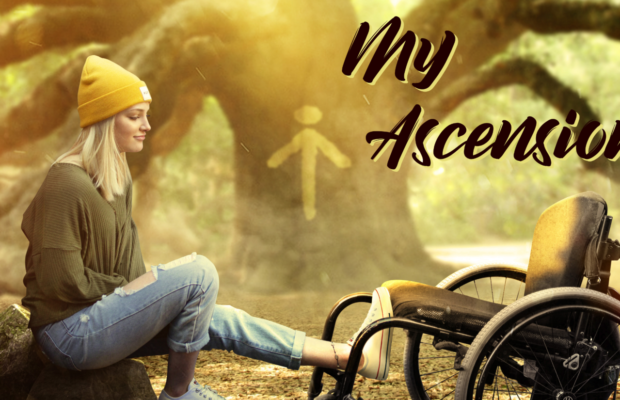‘My Ascension’ speaker offers message of hope

In 2017, 16-year-old cheerleader Emma Benoit woke up in the hospital confused and unable to move her legs. She thought she had been attacked, but her family helped her remember what really happened. She attempted suicide by shooting herself and had been left paralyzed by the gunshot wound. It had been a miracle she survived. That second chance at life made her find purpose in trying to prevent suicide by sharing her story with the world.
“I felt extremely fortunate to have gotten a second chance and was burdened by the thought that others were struggling in silence as I was. Coming out on the other end of a suicide attempt, I experienced a regret that felt so strong that I knew that other people who were hurting and feeling suicidal didn’t want to die. They wanted the pain to end. Knowing what it’s like to get to the point where all hope is lost, and then immediately after the attempt was made, I knew that I made a mistake. I feel like sharing my story can prevent others from falling victim to their thoughts and making the same permanent mistake.”
In early 2018 she started producing a documentary about her life after suicide. The recovery of her body and soul as well as her training led to her becoming a professional suicide prevention advocate.
“Making this movie was a form of therapy for me. Prior to agreeing to film a documentary, I was not open or comfortable talking about my feelings with anyone. I didn’t have the language to describe what I felt, so it was a learning curve in the beginning. The more I agreed to be filmed, the easier it became. Over the course of three years, I allowed a camera crew to follow me around and ask me deep personal questions. I always had a feeling that my story would help someone. It became healing for me to show and share my vulnerabilities with the world, and I felt extreme purpose in sharing my redemption story.”
She is currently on tour bringing the movie to communities to spread suicide and mental health awareness. On Oct. 23 she went to the Gallagher Bluedorn at UNI to show the movie to the people of Cedar Falls.
“Being able to go on tour for this movie has been healing and purposeful. The feedback consistently shows that there is a great need, and people are extremely receptive to viewing the film with a Q&A. Sharing my story is the hardest thing I’ve ever signed up for. Some young people often do not take me seriously. I hope to be able to reach every person. It’s a challenge that I willingly choose because I know that sharing my testimony has made a difference in many people’s lives. Despite how difficult it is to relive my experiences each and every time I recount them, it is truly very rewarding for me when someone shares how my story has impacted, touched or helped them. Cedar Falls was such a lovely place. The residents of Cedar Falls and surrounding areas are extremely warm and welcoming. It brings my heart great joy to see a community that cares so much about people. It was an honor to share my story in Iowa, and I hope to be back.”
One of the ideas in the movie was hope squads, a type of student organization started in Utah that has now spread across the country that tries to prevent suicide in schools by educating students on mental health and training them about what to do when someone is suicidal. Benoit shared how Cedar Falls students could get one implemented at a school if a community wanted one.
“The more students you have rallying for a hope squad, the better. Hope Squad is a peer-to-peer and student leadership program, so the best way to get your school to agree to fund it is if you can gather a group of peers who all want to implement a Hope Squad in your school.“
In addition to sharing her story, Benoit said that suicide is truly never an option, she and gives hope to teens struggling with mental health that they will be OK. She said those experiencing mental illness or suicidal thoughts should reach out to our counselors, a therapist, family, friends and the resources below.
“If you are having suicidal thoughts, please reach out to an adult who will help you. These thoughts are fleeting. Remember that nothing is permanent. Things will change. Do not be a victim of your brain’s lies—when you are feeling overwhelmed, overworked or emotionally hurt, your brain cannot make rational choices. When you start to feel this way and your mind starts to creep with intrusive suicidal thoughts, call someone. Reach out so that you are not alone in those moments with those feelings. Talking through my thoughts and feelings has been the best thing for my mental health. I encourage you to open up and let people know how you feel and what you need. Dealing with suicidal thinking is the most challenging road to navigate, but it is absolutely something that you can overcome. Silence will never keep you safe.“
988 Suicide and Crisis Lifeline









You must be logged in to post a comment Login